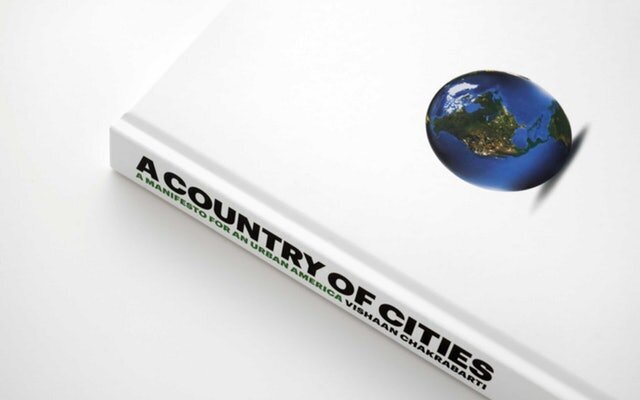Death Of The Suburbs: An Urban Manifesto
It’s time to fundamentally reevaluate the way we build - not just at the level of detailing, but at the scale of the city. What are the decisions we make about density and how do they affect our daily lives? Why do we orient our urban infrastructure around cars when they’re incredibly inefficient ways to move people around? Why can’t you get to 90% of your daily needs within a 15 minute walk? Join Kristof as he interviews Ruchi Modi of the architecture and urbanism firm, PAU on a range of topics exploring how urban environments (can and will) actually benefit the entire planet.
Ruchika Modi, AIA
Ruchika Modi is an associate partner and the studio director at PAU. A registered architect, she oversees all aspects of the design process in the office. Most recently Ruchika completed design development for Riverfront Square, a 730-unit residential project in Newark, NJ. She is currently spearheading the design of the Domino Sugar Refinery in Brooklyn, NY, an adaptive reuse project to transform a factory into offices with a mixed-use ground floor; the master plan and design of forty-one buildings as part of a mixed-use new development in Ulaanbaatar, Mongolia; and an arcade infill and POPS design for an Emery Roth–designed office building in Manhattan.
Before joining PAU, Ruchika was a senior associate at Standard Architects and a founding partner of Studio r&star in New York City. She has also worked at Smith-Miller + Hawkinson Architects, Richard Lewis Architects, Maria McVarish Design Services, and Tim Perks Architecture.
Ruchika holds a Master of Architecture degree from the Graduate School of Architecture, Planning and Preservation at Columbia University, where she was awarded the Charles McKim Prize for Excellence in Design / Saul Kaplan Traveling Fellowship, the William Kinne Fellows Prize for Study and Travel Abroad, and the Lucille Smyser Lowenfish Memorial Prize. She received her BA in economics from the University of Delhi and a BA with distinction in interior architecture from the California College of Arts, San Francisco. Her work has been exhibited at the Center for Architecture in New York, the International Architecture Biennale in Rotterdam, and the China International Architectural Biennale in Beijing.
PAU
Founded by Vishaan Chakrabarti, FAIA FRAIC, in 2015, PAU is both an emerging and an established global practice. We embrace architecture and city planning as allied fields operating along a range of scales. We break down disciplinary boundaries by expanding the definition of architecture and rejecting the silos that have ossified it. Our designers use both sides of their brains to be as creative as they are analytical. Given the breadth and depth of our team’s talents, but also in an effort to raise labor standards in our field, we treat our personnel with the utmost respect in terms of compensation, staff development, benefits, and work-life balance. Our team of twenty, our network of experienced collaborators, and our clients all come to PAU inspired by our desire to palpably and positively impact the world. Together we thrive on constraints such as program, constructability, public process, regulation, budget, and schedule as the fuel for innovation and beauty. To achieve this, from the precise scale of an architectural detail to the large scale of a master plan, ours is a group of “swiss-army knives,” professionals who employ an unprecedented range of skills and mindsets. We are fluent in multiple languages: we speak architecture, we speak culture, we speak ecology, we speak economics, we speak academia, we speak urbanity, we speak government, and, perhaps most importantly, we speak the language of democratic public process, because the complexities of the projects we design demand no less. Below are brief descriptions of the individuals who form our unique collective, a group of thinkers who build, utopian pragmatists whose dreams of impactful design have been forged in the white heat of hard-fought experience.
A Country Of Cities
There's a creeping sameness in many of our newest urban buildings and streetscapes, says architect Vishaan Chakrabarti. And this physical homogeneity -- the result of regulations, mass production, safety issues and cost considerations, among other factors -- has blanketed our planet in a social and psychological homogeneity, too.
Vishaan Chakrabarti's book, "A Country of Cities: A Manifesto for an Urban America," makes the case that a more urban USA would result in a more prosperous, sustainable, joyous and socially mobile nation.
Quotes From The Book
“While the same tired debates define our political rhetoric, do we consider whether our profligate use of land is the primary culprit behind our vexing national malaise?”
— Vishaan Chakrabarti, "A Country of Cities: A Manifesto for an Urban America,"
“Driving across the country is a joy; driving to work is folly.”
— Vishaan Chakrabarti, "A Country of Cities: A Manifesto for an Urban America,"
“Most of what concerned middle-class Americans about the health and safety of city life has all but dissipated with the dawn of the new century.”
— Vishaan Chakrabarti, "A Country of Cities: A Manifesto for an Urban America,"
“Proponents of passenger rail are continually pressed to prove profitability, while few ask whether airlines or auto companies would be profitable without massive government subsidies and bailouts.”
— Vishaan Chakrabarti, "A Country of Cities: A Manifesto for an Urban America,"
Team
Hosted by Kristof Irwin
Edited and Produced by M. Walker


